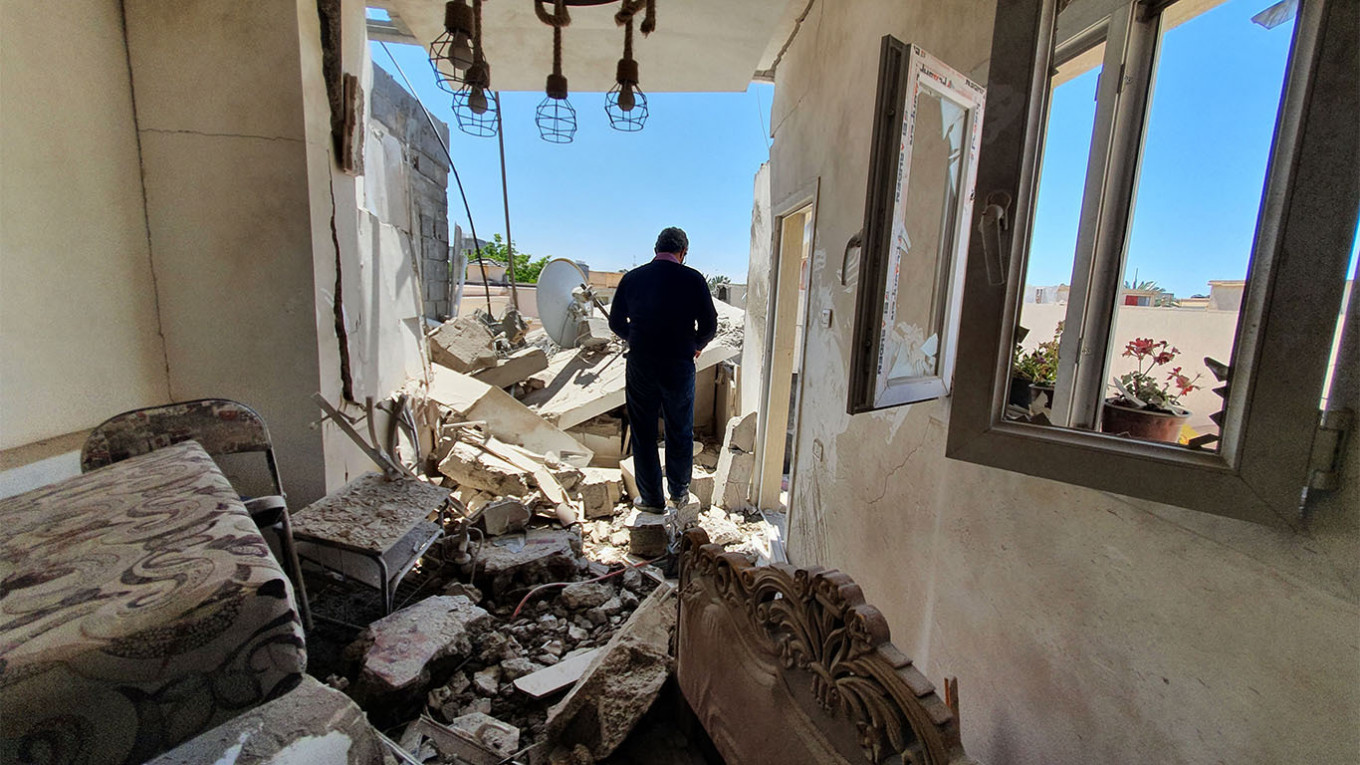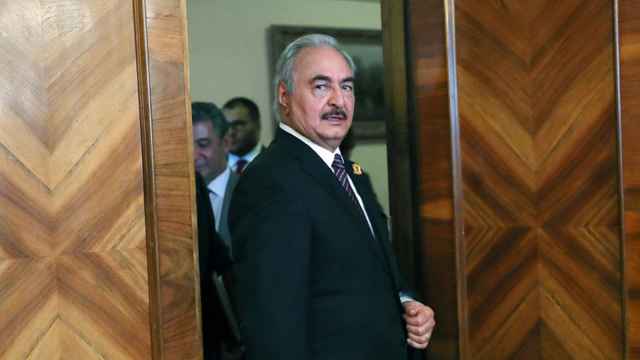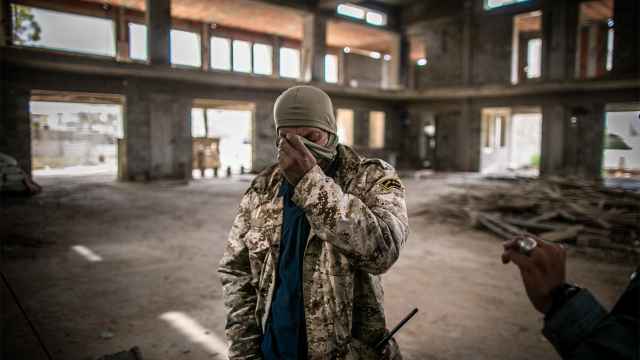Mercenaries from the Wagner Group, a Russian paramilitary organization seen as being close to President Vladimir Putin, are fighting in Libya, UN diplomats said Wednesday, citing an experts' report on the country's arms embargo.
It was the first time the UN has confirmed claims first made in U.S. media that the group is supporting military strongman Khalifa Haftar. Moscow has denied being responsible for deploying the group.
The report also revealed that Haftar was being supported by Syrian fighters.
The Wagner Group is a shadowy private security firm and thousands of its contractors are believed to be in foreign conflicts from Syria and Ukraine to the Central African Republic.
A senior U.S. State Department official has told AFP the group is "an instrument of the Kremlin's policy" in Libya.
"The Panel has identified the presence of private military operatives from ChVK Wagner in Libya since October 2018," the UN report says, according to several diplomats who spoke to AFP on condition of anonymity as the document has not yet been made public.
"Wagner has been providing technical support for the repair of military vehicles, participating in combat operations and engaging in influence operations," the UN report says.
They are also involved in "more specialized military tasks such as acting as artillery Forward Observation Officers and Forward Air Controllers, providing electronic countermeasures expertise and deploying as sniper teams," it continued.
"Their deployment has acted as an effective force multiplier" for Haftar, it said.
The experts said they could not independently verify how many Wagner mercenaries were in Libya, but estimated their deployment at between 800 and 1,200.
The report, submitted on April 24 to the UN Security Council, notes that there are tensions between Wagner and Haftar's command.
No call for sanctions
It also revealed that Haftar is receiving help from Syrian fighters, further complicating the conflict.
In February, Turkey said that pro-Turkish Syrians were fighting in Libya in support of the internationally recognized Government of National Accord (GNA).
Haftar has opened a consulate in Damascus, where the regime of Syrian President Bashar al-Assad is backed by Russia.
The UN report says Syrian mercenaries are now fighting alongside Haftar — though it said it could not identify who was responsible for training and financing them.
The fighters reached Libya via at least 33 flights operated by Damascus-based private Syrian company Cham Wings Airlines since the start of this year, according to the report, adding that they numbered less than 2,000.
The text is an update of the expert panel's last annual report from December, which had noted the existence of foreign armed groups from Chad and Sudan in the conflict, but did not mention Wagner.
Pro-Haftar forces have been battling to seize the capital Tripoli from the GNA since April 2019.
Foreign military involvement has exacerbated the conflict, with the United Arab Emirates and Russia backing Haftar and Ankara supplying the GNA.
A January truce brokered by Turkey and Russia has been repeatedly violated.
Wagner's involvement in the conflict was first revealed by The New York Times and The Washington Post last year. The former put their numbers at 200, while the latter said it could be as high as several thousand.
The UN report does not recommend sanctions against the groups or any action to prevent their involvement.
A report by UN Secretary General Antonio Guterres submitted to the Security Council on Tuesday and obtained by AFP also mentioned foreign mercenaries but did not identify them or recommend any action against them.
A Message from The Moscow Times:
Dear readers,
We are facing unprecedented challenges. Russia's Prosecutor General's Office has designated The Moscow Times as an "undesirable" organization, criminalizing our work and putting our staff at risk of prosecution. This follows our earlier unjust labeling as a "foreign agent."
These actions are direct attempts to silence independent journalism in Russia. The authorities claim our work "discredits the decisions of the Russian leadership." We see things differently: we strive to provide accurate, unbiased reporting on Russia.
We, the journalists of The Moscow Times, refuse to be silenced. But to continue our work, we need your help.
Your support, no matter how small, makes a world of difference. If you can, please support us monthly starting from just $2. It's quick to set up, and every contribution makes a significant impact.
By supporting The Moscow Times, you're defending open, independent journalism in the face of repression. Thank you for standing with us.
Remind me later.






